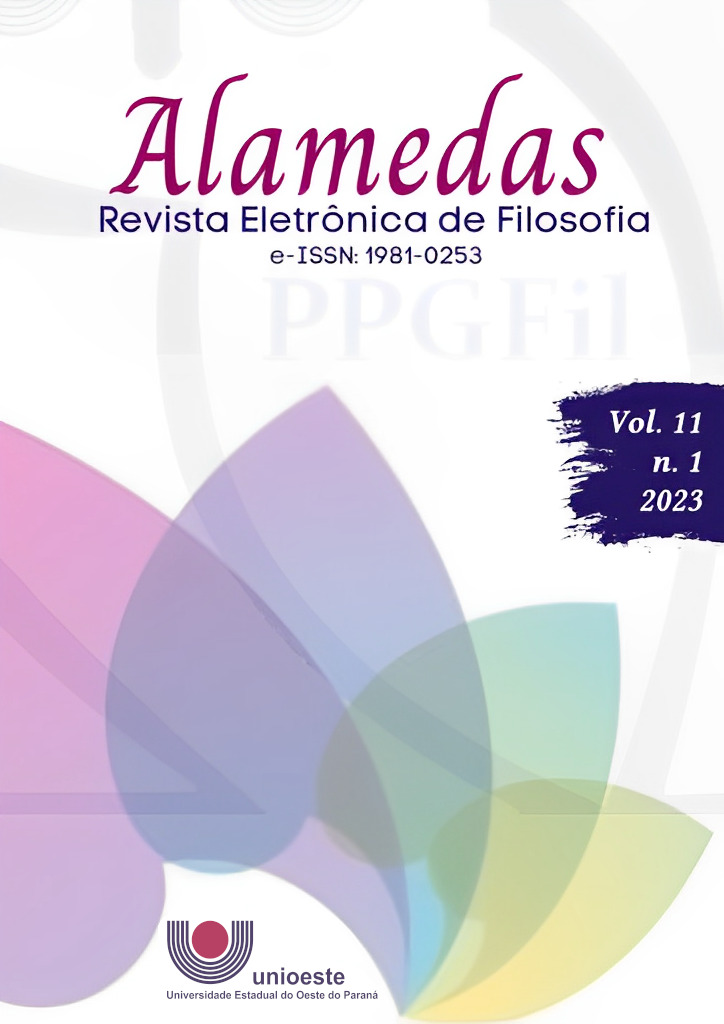ISOLATION IN GADAMER'S PERSPECTIVE OF A NON-SOLIDARITY LIVING
DOI:
https://doi.org/10.48075/ra.v11i1.30260Abstract
ABSTRACT
The objective of this study is to show the implications, effects and consequences of the importance of a non-solidary life, based on the philosophical considerations of Hans-Gadamer in his text: “Isolation as a symptom of self-alienation”. Therefore, it will be necessary to survey articles related to the theme as an imperative methodology, in an attempt to support the philosopher's perception of the relationship between isolation and loneliness. In his writings, Gadamer argues that isolation falls under the pillar of religiosity, whose greatest example brought in his approach is the abandonment of Christ on the cross. This reference, whose hypotheses about the different types of abandonment visible in current reality, may or may not justify non-supportive living. Then, we point out that the exacerbation of isolation, whether for personal or occasional reasons, is sometimes motivated by the need to safeguard oneself, which results in the weakening of friendship relationships and even more sedimented bonds with the other. In the end, we conclude that experiencing one's own limits of resistance and overcoming a non-solidary life implies the individual's maladjustment.
Keywords: Isolation; Non-solidary living; Gadamer
Downloads
Published
How to Cite
Issue
Section
License
Copyright (c) 2023 Alamedas

This work is licensed under a Creative Commons Attribution-NonCommercial-ShareAlike 4.0 International License.
Aviso de Direito Autoral Creative Commons
Política para Periódicos de Acesso Livre
Autores que publicam nesta revista concordam com os seguintes termos:
1. Autores mantém os direitos autorais e concedem à revista o direito de primeira publicação, com o trabalho simultaneamente licenciado sob a Licença Creative Commons Attribution que permite o compartilhamento do trabalho com reconhecimento da autoria e publicação inicial nesta revista.2. Autores têm autorização para assumir contratos adicionais separadamente, para distribuição não-exclusiva da versão do trabalho publicada nesta revista (ex.: publicar em repositório institucional ou como capítulo de livro), com reconhecimento de autoria e publicação inicial nesta revista.
3. Autores têm permissão e são estimulados a publicar e distribuir seu trabalho online (ex.: em repositórios institucionais ou na sua página pessoal) a qualquer ponto antes ou durante o processo editorial, já que isso pode gerar alterações produtivas, bem como aumentar o impacto e a citação do trabalho publicado (Veja O Efeito do Acesso Livre).
Licença Creative Commons
Esta obra está licenciada com uma Licença Creative Commons Atribuição-NãoComercial-CompartilhaIgual 4.0 Internacional, o que permite compartilhar, copiar, distribuir, exibir, reproduzir, a totalidade ou partes desde que não tenha objetivo comercial e sejam citados os autores e a fonte.


